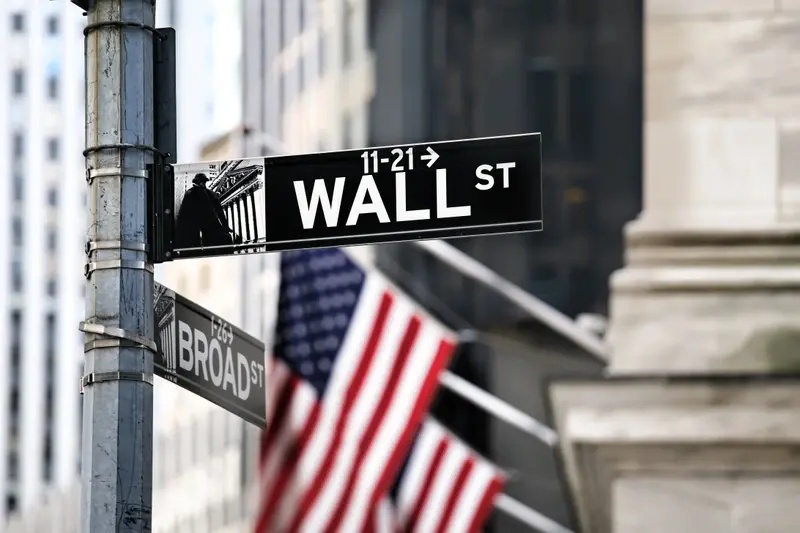
After September’s boom, US stocks have gone limp into early October with investor’s troubled by escalating aggression in the Middle East, pushing oil prices to their biggest increases in nearly a year.
At the same time, mixed economic data offered little firm clue as to the future of the Federal Reserve’s easing cycle after Fed Chair Jerome Powell hinted the central bank is not in a rush to rapidly cut rates.
Job openings surprisingly increased in August, furthering the narrative that while the labour market is cooling, it's not rapidly slowing. New data showed there were 8.04 million jobs open at the end of August, an increase from the 7.71 million seen in July.
US manufacturing held steady in September. The Institute for Supply Management (ISM) said its manufacturing PMI was unchanged at 47.2 last month. Despite holding steady, the reading still came in weak, as a PMI below 50 indicates a contraction in the manufacturing sector.
All three major indexes fell over the past week, led by tech-heavy Nasdaq stocks, while Tesla (TSLA:NASDAQ) shares remained under pressure after Wednesday’s delivery update.
The dollar strengthened, buoyed by signs of U.S. economic strength. Sterling weakened around 1% versus the greenback after the Bank of England indicated it could cut rates more aggressively if inflation continues to ease.
Next week will see the start of quarterly earnings season with banks, including Wells Fargo (WFC:NYSE) and JPMorgan (JPM:NYSE) out of the blocks first on Friday (11 Oct).
NIKE
It has been another dark week for investors in Nike (NKE:NYSE), shares in the lately-beleaguered sportwear behemoth falling 7% to $83.1 after first quarter revenues missed estimates. The trainers titan also withdrew its full-year outlook and postponed an investor day to enable new CEO Elliott Hill to get his sneaker-adorned feet under the table.
A lot is now riding on company veteran Hill getting the business back into shape and reclaiming a place on the athleisure winners’ podium. While first quarter earnings of $0.70 came in ahead of the $0.52 Wall Street was calling for, revenue of $11.59 billion was down 10% year-on-year and shy of the $11.65 billion expected.
Nike, which has surrendered market share to rivals like On, Hoka and New Balance, suffered an 11% drop in North America sales to $4.83 billion and endured a direct-to-consumer arm revenue slump to boot. Nike, which urgently needs to raise its product innovation game, now expects second quarter sales to fall in a range of 8% to 10%.
LEVI STRAUSS
Shares in iconic jeans company Levi Strauss (LEVI:NYSE) shrank 8% to $19.40 after the firm posted disappointing revenue for the third quarter to August 25 and forecast tepid holiday-quarter sales as the denim-maker faces a slowdown in consumer spending on apparel.
‘The underlying fundamentals of our business are getting stronger,’ argued president and chief executive Michelle Gass. ‘We are making progress against our strategic priorities, including double-digit growth in our direct-to-consumer business, continued positive performance in the U.S. and Europe inflecting to growth.’
Gass has made it her mission to take Levi Strauss from $6 billion of annual revenue to $10 billion by opening more own stores and growing its D2C (direct-to-consumer) franchise, teaming up high-profile stars like Beyonce to boost its marketing, and reaching back into the vault for styling cues from its original designs, like other fashion brands.
Management is also reviewing areas where the group has underperformed, so it has sold the Denizen business and is ‘evaluating strategic alternatives’ for its Dockers footwear business, meaning it is ready to sell to the highest bidder.
CONSTELLATION BRANDS
Alcoholic beverages maker Constellation Brands (STZ:NYSE) fell 2% on Thursday (3 Oct) despite beating Street earnings estimates after being forced to book a $2.25 billion impairment charge due to weak wine demand.
Last month the Corona beer and Robert Mondavi wine producer upped its full year outlook for adjusted EPS (earnings per share) to a range of $13.60 to $13.80 but lowered its sales growth forecast to between 4% and 6% from 6% to 7%.
CEO Bill Newlands said: ‘While the current economic backdrop has weighed on demand for beverage alcohol, we continued to deliver strong performance in Q2 of fiscal 2025’.
The company posted a 14% increase in second quarter EPS to $4.32 on revenue up 3% to $2.92 billion, compared with consensus forecasts of $4.08 and $2.90 billion respectively.
The shares have lagged the S&P 500 index this year, gaining around 2% compared with a near 20% advance for the benchmark.




